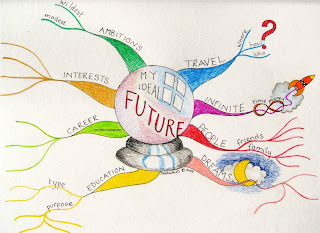Maps have come a long way since cartographers used mermaids and dragons to cover up the gaps in their knowledge.
1 Welcome to real-time traffic data
Currently, traffic data largely consists of ad hoc reports from the ground and analysis of camera feeds. Companies such as Waze, acquired by Google for $1.1bn in 2013, are changing that. Users of the service contribute to a real-time data stream that maps a city's traffic with unprecedented detail.
2 Let's take this inside
Modern navigation systems can get you to the door, but rarely any further. Now that's slowly becoming a thing of the past. Google now offers indoor maps for Android users at around 10,000 locations and rival Microsoft is doing the same with Bing Maps, including indoor maps at locations such as Heathrow.
3 Open alternatives
Although Google Maps dominates the mapping industry, there are viable open-source alternatives that have no copyright restrictions and let the crowd update the map. OpenStreetMap is the leading name in this area and powers travel app Citymapper.
4 A military upgrade
Britain's armed forces are beginning to go beyond GPS with "quantum positioning". By using powerful lasers to detect the effects of gravitational and magnetic fields on super-chilled atoms, the navy hopes to track its submarines to centimetre precision.
5 Happy to share?
British company, Presence Orb, wants to anonymously aggregate Wi-Fi signals given off by smartphones to provide real-time information about how full a bus is, for example. The main challenge is overcoming people's aversion to that level of intrusion.
6 Sidestepping political controversy
Cartographers today can have their cake and eat it when it comes to borders. When Crimea was annexed by Russia in March, Google Maps showed the change to Russian users. American users were shown Crimea as "occupied territory".
7 Your phone already knows where you live
Analogue maps were passive, static tools. With Google Now, the latest Android devices can automatically learn your home and work locations by tracking your daily routine – tell your phone "take me home" and it will know where to take you.
8 Need a parking space? No problem.
Getting to your destination is the easy part; finding a parking space is tough. Audi is experimenting with parking sensors in San Francisco and Los Angeles that not only keep track of free parking spaces, but can also help to predict when a space will become free by learning parking behaviours.
9 Directions from your best friend
Instead of relying on a computer to provide you with a series of boring left and right turns, US startup Mapkin wants friends to share directions with each other, including memorable stops between A and B.
10 Making maps come alive
In an ideal world, the maps of public transport systems would be dynamic. Tunnel Vision – currently only available for New York – is an app that overlays information on to subway maps showing users, for example, which stations are most likely to be crowded.
Source : www.theguardian.com

0 comments:
Post a Comment